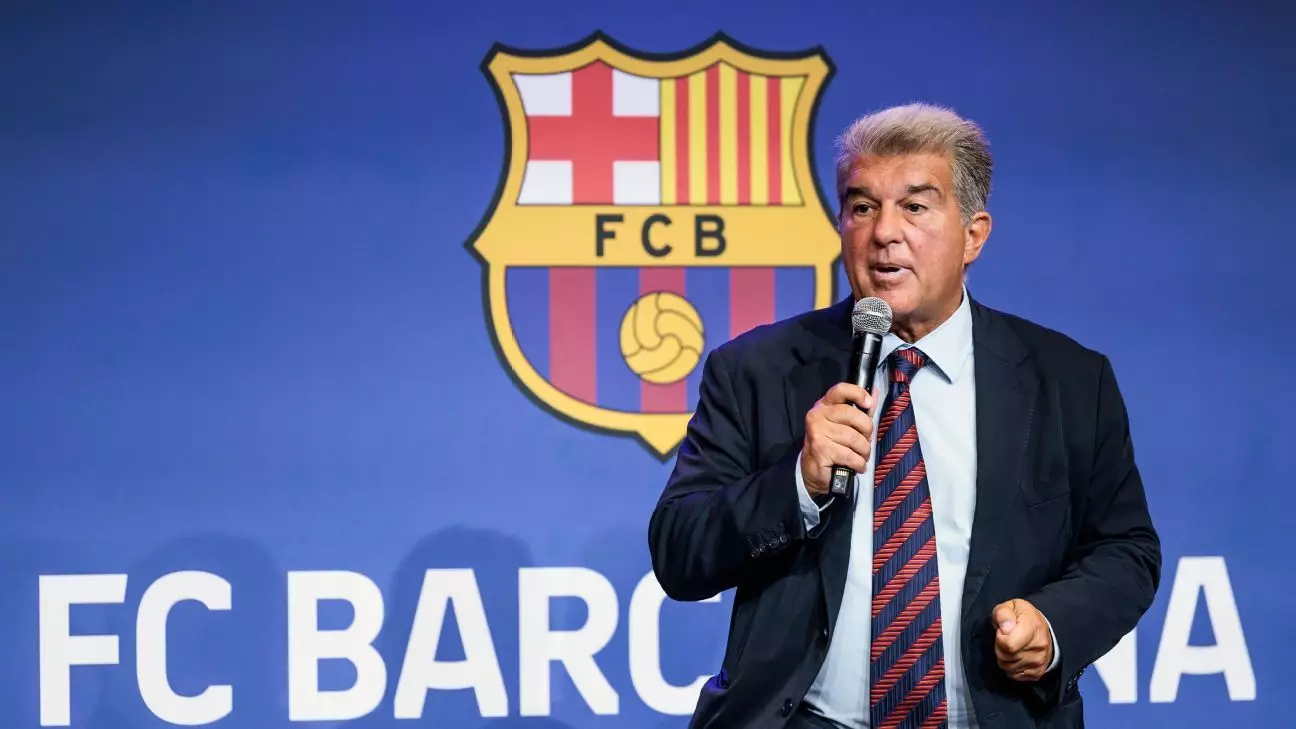The tumultuous atmosphere at FC Barcelona has intensified in recent weeks, with mounting pressure on the club’s president, Joan Laporta, to resign. This dissatisfaction stems largely from the club’s failures in the registration of players Dani Olmo and Pau Víctor, events that have triggered a unified response from multiple opposition groups who are rallying against Laporta’s leadership. The situation raises crucial questions not only about management priorities but also about the accountability and transparency in the operations of one of the world’s most beloved football clubs.
At the center of this unrest is the club’s catastrophic error regarding the registration of Olmo and Víctor. The missed deadline of December 31 to ensure compliance with LaLiga’s financial fair play regulations has left both players in limbo, unable to participate in competitive matches. Opposition groups have characterized this oversight as “negligence,” laying the blame squarely on Laporta. Given that the president holds a mandate expected to last until 2026, the growing outcry from ten separate parties, spearheaded by influential figures like Victor Font and Joan Camprubí Montal, signifies a deeper discontent about his leadership.
It’s not just the registration failure that has sparked dissent; it is also indicative of larger systemic issues within the club. The accusation of incompetence coupled with the current president’s strained relationships with the fans can erode trust and authority, essential components for any successful football club. A call for a vote of no confidence could escalate tensions further, leading to instability at a time when unity is crucial for on-field performance.
Further complicating Laporta’s presidency are concerns regarding financial decisions that have been criticized by fans and stakeholders alike. The controversial commission paid to third parties in the renewal of the kit deal with Nike, alongside the exorbitant sale of VIP seats at Camp Nou valued at €100 million for 20 years, has raised eyebrows. The closure of a fan singing section at the Olympic Stadium due to disputes only adds to the perception that Laporta is out of touch with grassroots supporters.
These actions collectively contribute to a narrative that suggests mismanagement. For a club with a rich history and a passionate global fan base, the sense that financial motivations are undermining core values threatens to alienate supporters. Moreover, blaming external factors like financial regulations without addressing internal governance seems to reflect a lack of responsibility and foresight from the administration.
As the situation unfolds, Barcelona’s decision to appeal to the Consejo Superior de Deportes (CSD), Spain’s highest sports court, marks a desperate move to salvage the season. The club aims to demonstrate that force majeure played a role in missing the registration deadline, hinging their case on external conditions rather than internal mismanagement. Meanwhile, the interpretation of rules regarding the registration of players looms large, casting a shadow on the efficacy of current administrative protocols.
The immediate future for Olmo and Víctor remains uncertain; both have clauses that allow them to leave for free should their registrations fail. While they currently do not contemplate exiting the club amidst this turmoil, the ongoing situation risks long-term repercussions on player morale and commitment. A resolution appears necessary not just for their individual careers but also for Barcelona’s aspirations on the pitch.
The growing dissatisfaction among fans and stakeholders presents an urgent call for reflection at FC Barcelona. With Laporta facing calls for resignation, it is increasingly apparent that the club must address its internal struggles. While financial and regulatory challenges are inherent in modern football, the transparency and effectiveness of leadership will ultimately define Barcelona’s path forward. The unity among different opposition groups reflects a collective yearning for positive change, urging the club to reconnect with its core values and restore the faith of its supporters. The road ahead is precarious, but it underscores the premise that failure to adapt can lead to more profound failures in one of football’s most storied institutions.

